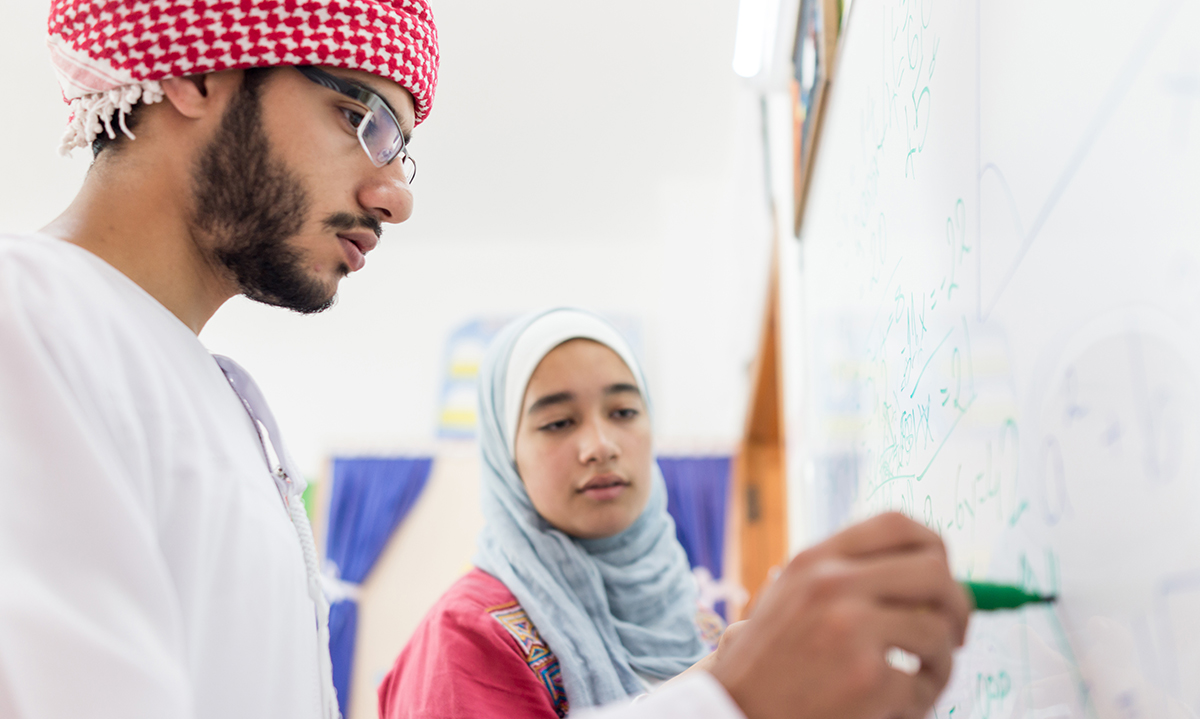The Novo Nordisk Foundation is awarding a grant of DKK 20 million to support an innovative new project aiming to increase sustainable livelihoods for Syrian refugees in Jordan.
The project will support more than 4,300 refugees and other conflict-affected populations by providing skills building, vocational training, business development, microfinance and 3,400 start-up grants to support the development and growth of new income-generating activities and small businesses in Jordan.
The project is part of a development impact bond, a pioneering new approach to humanitarian and development financing and the first of its kind in the region. Impact bonds – or results-based financing – can finance humanitarian and development programmes with funds from private investors who earn a return if the programme is successful, paid by a third-party donor or government (outcome funder). Impact bonds may also attract new types of investors and competencies to the sector to improve the projects.
“The humanitarian and development sectors are heavily underfinanced globally. There is a great need for additional, more efficient and more dependable financing. By supporting this project, we want to contribute to attracting new types of investors and financial competencies to the sectors. This will challenge habitual thinking, enhance innovation and ultimately contribute to developing stronger projects,” says Mette Ide Davidsen, Interim Head of Department, Social & Humanitarian, Novo Nordisk Foundation.
A different approach
In the project, the Novo Nordisk Foundation has partnered with the IKEA Foundation and the Norwegian Agency for Development Cooperation (Norad) as outcome funders of the project, while the US development bank (DFC) and Ferd, a family-owned Norwegian investment company, have agreed to invest a combined DKK 88 million (USD 14 million) in the project, which will be implemented by the international NGO Near East Foundation.
Development impact bonds differ from more traditional development projects by focusing on accomplishing social outcomes rather than on the activities required to reach these results.
In the new project in Jordan, the investors can earn an up to 5.1% return on their investment if the project goals are accomplished. This amount is covered by the outcome funders. On the other hand, the investors can lose up to 20% of their investment if the project does not accomplish its goals. The remaining 80% is covered by the outcome funders.
The outcomes to be measured are agreed upon at the outset of the project and independently verified. Possible project goals include the number of people reached or the number of sustainable companies established.
The payment-by-result approach with upfront capital provided by the investors also gives the Near East Foundation the opportunity to continuously rethink the project and be innovative, thereby maximising the outcome of the project. This approach has only become more relevant in the light of the COVID-19 pandemic.
“With greater focus on outcomes instead of inputs, impact bonds may create space for more innovation, local problem-solving and adaptation than traditional projects. By supporting the project, we hope to contribute to significantly improving social and economic empowerment and including Syrian refugees in Jordan, thereby improving their quality of life and future prospects,” says Mette Ide Davidsen.
Impact bonds are widely used in high-income economies, where they operate as social impact bonds and are meant to improve the efficiency of government contracts.
The Syrian conflict has driven 6.6 million people to flee Syria, with 80% settling in neighbouring countries. According to the Jordanian government, Jordan is currently hosting 1.3 million Syrian refugees.
Read more about the project here: https://www.refugeeimpactbond.org/
Further information
Christian Mostrup, Senior Programme Lead, Communications, +45 3067 4805, [email protected]








